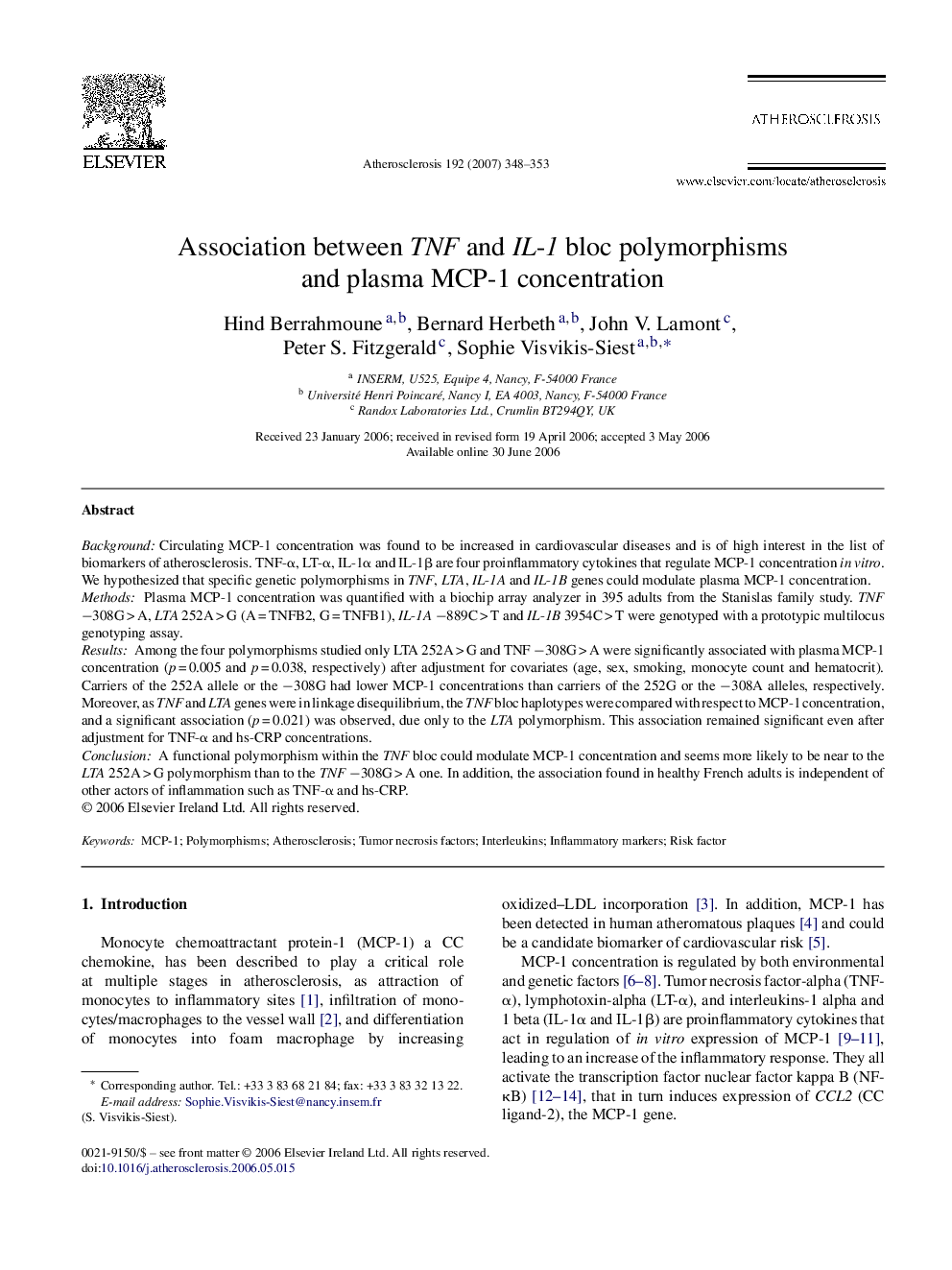| Article ID | Journal | Published Year | Pages | File Type |
|---|---|---|---|---|
| 2894844 | Atherosclerosis | 2007 | 6 Pages |
BackgroundCirculating MCP-1 concentration was found to be increased in cardiovascular diseases and is of high interest in the list of biomarkers of atherosclerosis. TNF-α, LT-α, IL-1α and IL-1β are four proinflammatory cytokines that regulate MCP-1 concentration in vitro. We hypothesized that specific genetic polymorphisms in TNF, LTA, IL-1A and IL-1B genes could modulate plasma MCP-1 concentration.MethodsPlasma MCP-1 concentration was quantified with a biochip array analyzer in 395 adults from the Stanislas family study. TNF −308G > A, LTA 252A > G (A = TNFB2, G = TNFB1), IL-1A −889C > T and IL-1B 3954C > T were genotyped with a prototypic multilocus genotyping assay.ResultsAmong the four polymorphisms studied only LTA 252A > G and TNF −308G > A were significantly associated with plasma MCP-1 concentration (p = 0.005 and p = 0.038, respectively) after adjustment for covariates (age, sex, smoking, monocyte count and hematocrit). Carriers of the 252A allele or the −308G had lower MCP-1 concentrations than carriers of the 252G or the −308A alleles, respectively. Moreover, as TNF and LTA genes were in linkage disequilibrium, the TNF bloc haplotypes were compared with respect to MCP-1 concentration, and a significant association (p = 0.021) was observed, due only to the LTA polymorphism. This association remained significant even after adjustment for TNF-α and hs-CRP concentrations.ConclusionA functional polymorphism within the TNF bloc could modulate MCP-1 concentration and seems more likely to be near to the LTA 252A > G polymorphism than to the TNF −308G > A one. In addition, the association found in healthy French adults is independent of other actors of inflammation such as TNF-α and hs-CRP.
